Here are my favorite poems about wandering categorized:
- Short poems about wandering
- Famous poems about wandering
So if you want the best poems about wandering, then you’re in the right place.
Let’s get right to it!
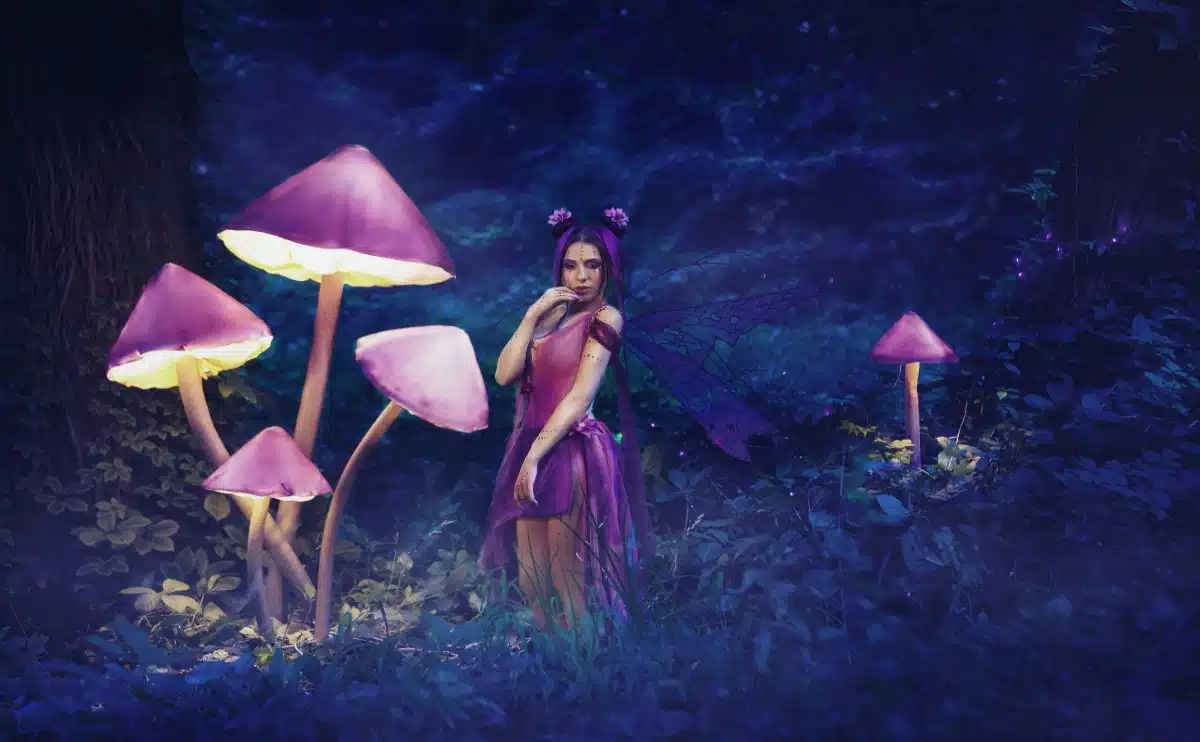
Awe-Striking Poems About Wandering
Embark on a captivating journey through a carefully curated selection of poems about wandering.
From mesmerizing short verses that capture the essence of exploration to renowned masterpieces that have stood the test of time, this collection offers the best of wandering poetry in a single captivating realm.
Lose yourself in the wanderer’s footsteps as you traverse the pages, discovering the profound beauty, introspection, and infinite possibilities that lie within the realm of wandering.
Prepare to be enchanted by the lyrical melodies that evoke a sense of wonder and ignite the longing for adventure that dwells within us all.
Let’s get started!
My #1 Favorite Poem About Wandering
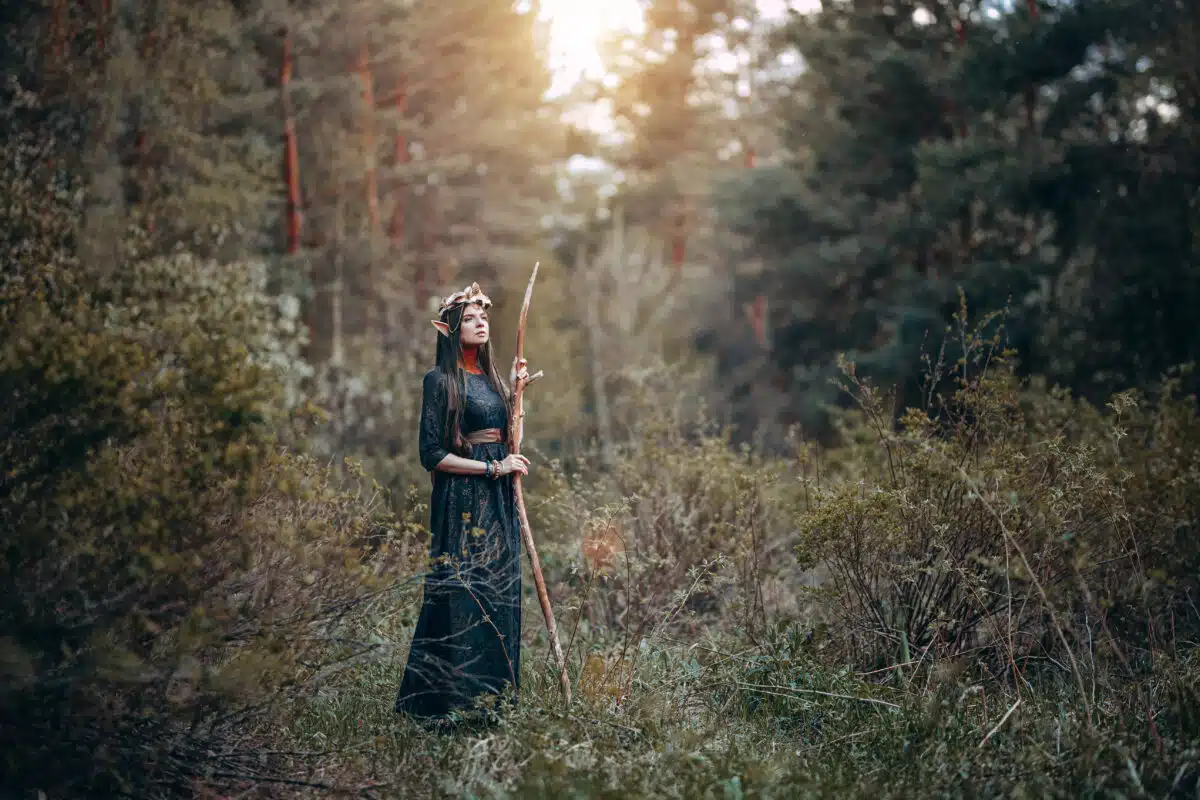
“Wanderlieder” by John Milton Hay
I stand at the break of day
In the Champs Elysees.
The tremulous shafts of dawning,
As they shoot o’er the Tuileries early,
Strike Luxor’s cold grey spire,
And wild in the light of the morning
With their marble manes on fire,
Ramp the white Horses of Marly.
But the Place of Concord lies
Dead hushed ‘neath the ashy skies.
And the Cities sit in council
With sleep in their wide stone eyes.
I see the mystic plain
Where the army of spectres slain
In the Emperor’s life-long war
March on with unsounding tread
To trumpets whose voice is dead.
Their spectral chief still leads them, –
The ghostly flash of his sword
Like a comet through mist shines far, –
And the noiseless host is poured,
For the gendarme never heeds them,
Up the long dim road where thundered
The army of Italy onward
Through the great pale Arch of the Star!
The spectre army fades
Far up the glimmering hill,
But, vaguely lingering still,
A group of shuddering shades
Infects the pallid air,
Growing dimmer as day invades
The hush of the dusky square.
There is one that seems a King,
As if the ghost of a Crown
Still shadowed his jail-bleached hair;
I can hear the guillotine ring,
As its regicide note rang there,
When he laid his tired life down
And grew brave in his last despair.
And a woman frail and fair
Who weeps at leaving a world
Of love and revel and sin
In the vast Unknown to be hurled;
(For life was wicked and sweet
With kings at her small white feet!)
And one, every inch a Queen,
In life and in death a Queen,
Whose blood baptized the place,
In the days of madness and fear, –
Her shade has never a peer
In majesty and grace.
Murdered and murderers swarm;
Slayers that slew and were slain,
Till the drenched place smoked with the rain
That poured in a torrent warm, –
Till red as the Riders of Edom
Were splashed the white garments of Freedom
With the wash of the horrible storm!
And Liberty’s hands were not clean
In the day of her pride unchained,
Her royal hands were stained
With the life of a King and Queen;
And darker than that with the blood
Of the nameless brave and good
Whose blood in witness clings
More damning than Queens’ and Kings’.
Has she not paid it dearly?
Chained, watching her chosen nation
Grinding late and early
In the mills of usurpation?
Have not her holy tears,
Flowing through shameful years,
Washed the stains from her tortured hands?
We thought so when God’s fresh breeze,
Blowing over the sleeping lands,
In ‘Forty-Eight waked the world,
And the Burgher-King was hurled
From that palace behind the trees.
As Freedom with eyes aglow
Smiled glad through her childbirth pain,
How was the mother to know
That her woe and travail were vain?
A smirking servant smiled
When she gave him her child to keep;
Did she know he would strangle the child
As it lay in his arms asleep?
Liberty’s cruellest shame!
She is stunned and speechless yet,
In her grief and bloody sweat
Shall we make her trust her blame?
The treasure of ‘Forty-Eight
A lurking jail-bird stole,
She can but watch and wait
As the swift sure seasons roll.
And when in God’s good hour
Comes the time of the brave and true,
Freedom again shall rise
With a blaze in her awful eyes
That shall wither this robber-power
As the sun now dries the dew.
This Place shall roar with the voice
Of the glad triumphant people,
And the heavens be gay with the chimes
Ringing with jubilant noise
From every clamorous steeple
The coming of better times.
And the dawn of Freedom waking
Shall fling its splendours far
Like the day which now is breaking
On the great pale Arch of the Star,
And back o’er the town shall fly,
While the joy-bells wild are ringing,
To crown the Glory springing
From the Column of July!
Short Poems About Wandering

“The Wanderer” by John Frederick Freeman
Over the pool of sleep
The night mists creep,
Then faint thin light and then clear day,
Noontide, and lingering afternoon;
Then that Wanderer, the Moon
Wandering her old wild way.
How many spirits follow
Her in that dark hollow!
Like a lost lamb she roams on high
Through the cold and soundless sky,
And stares down into her deep
Reflection in the pool of sleep.
How many follow
Her in that lone hollow!
She sees them not nor would she hear
Though both shape and sound were clear,
But stares, stares into the pool
Of her fear and beauty full.
Far in strange gay skies
She pales and dies,
Forgetting that bright transitory
Reflection of astonished glory,
Nor heeds the spirits that follow
Her into day’s bright hollow.
“The Wanderer” by Eugene Field
Upon a mountain height, far from the sea,
I found a shell,
And to my listening ear the lonely thing
Ever a song of ocean seemed to sing,
Ever a tale of ocean seemed to tell.
How came the shell upon that mountain height?
Ah, who can say
Whether there dropped by some too careless hand,
Or whether there cast when Ocean swept the Land,
Ere the Eternal had ordained the Day?
Strange, was it not? Far from its native deep,
One song it sang,–
Sang of the awful mysteries of the tide,
Sang of the misty sea, profound and wide,–
Ever with echoes of the ocean rang.
And as the shell upon the mountain height
Sings of the sea,
So do I ever, leagues and leagues away,–
So do I ever, wandering where I may,–
Sing, O my home! sing, O my home! of thee.
“The Wanderer” by Sir Henry John Newbolt
To Youth there comes a whisper out of the west:
“O loiterer, hasten where there waits for thee
A life to build, a love therein to nest,
And a man’s work, serving the age to be.”
Peace, peace awhile! Before his tireless feet
Hill beyond hill the road in sunlight goes;
He breathes the breath of morning, clear and sweet,
And his eyes love the high eternal snows.
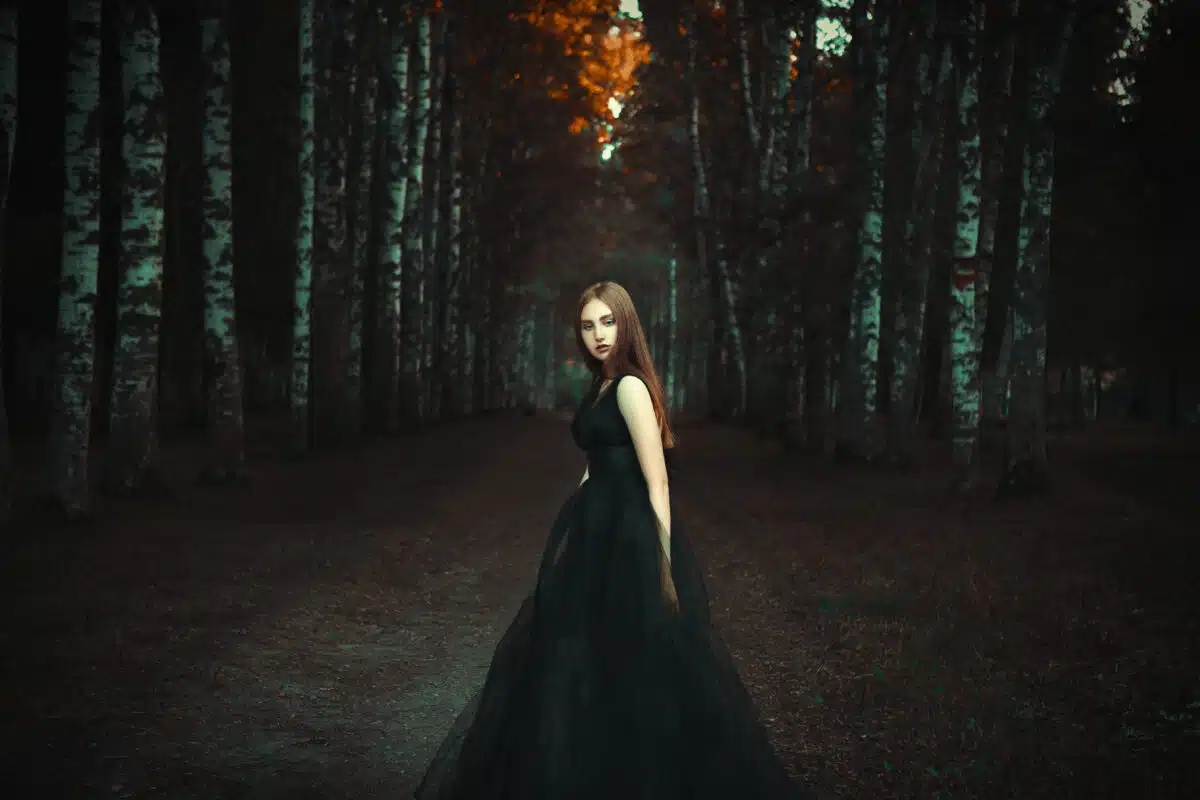
“Wanderers” by Walter De La Mare
Wide are the meadows of night,
And daisies are shining there,
Tossing their lovely dews,
Lustrous and fair;
And through these sweet fields go,
Wanderers amid the stars –
Venus, Mercury, Uranus, Neptune,
Saturn, Jupiter, Mars.
‘Tired in their silver, they move,
And circling, whisper and say,
Fair are the blossoming meads of delight
Through which we stray.
“A Wanderer’s Song” by John Masefield
A wind’s in the heart of me, a fire’s in my heels,
I am tired of brick and stone and rumbling wagon-wheels;
I hunger for the sea’s edge, the limit of the land,
Where the wild old Atlantic is shouting on the sand.
Oh I’ll be going, leaving the noises of the street,
To where a lifting foresail-foot is yanking at the sheet;
To a windy, tossing anchorage where yawls and ketches ride,
Oh I’l be going, going, until I meet the tide.
And first I’ll hear the sea-wind, the mewing of the gulls,
The clucking, sucking of the sea about the rusty hulls,
The songs at the capstan at the hooker warping out,
And then the heart of me’ll know I’m there or thereabout.
Oh I am sick of brick and stone, the heart of me is sick,
For windy green, unquiet sea, the realm of Moby Dick;
And I’ll be going, going, from the roaring of the wheels,
For a wind’s in the heart of me, a fire’s in my heels.
“The World’s Wanderers” by Percy Bysshe Shelley
I
Tell me, thou star, whose wings of light
Speed thee in thy fiery flight,
In what cavern of the night
Will thy pinions close now?
II
Tell me, moon, thou pale and grey
Pilgrim of heaven’s homeless way,
In what depth of night or day
Seekest thou repose now?
III
Weary wind, who wanderest
Like the world’s rejected guest,
Hast thou still some secret nest
On the tree or billow?
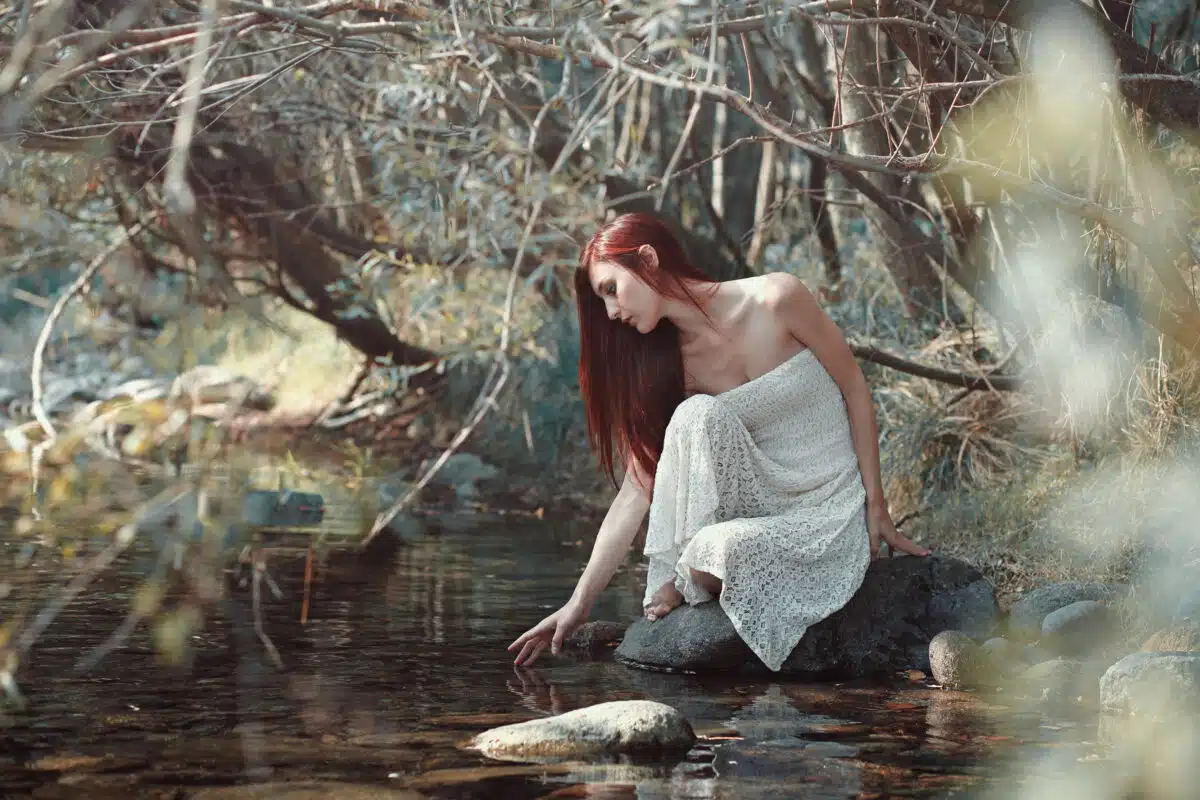
“London” by William Blake
I wander thro’ each charter’d street,
Near where the charter’d Thames does flow,
And mark in every face I meet
Marks of weakness, marks of woe.
In every cry of every man,
In every Infant’s cry of fear,
In every voice, in every ban,
The mind-forg’d manacles I hear.
How the Chimney-sweeper’s cry
Every blackning Church appalls;
And the hapless Soldier’s sigh
Runs in blood down Palace walls.
But most thro’ midnight streets I hear
How the youthful Harlot’s curse
Blasts the new-born Infant’s tear,
And blights with plagues the Marriage hearse.
“A Day for Wandering” by Clinton Scollard
I set apart a day for wandering;
I heard the woodlands ring,
The hidden white-throat sing,
And the harmonic West,
Beyond a far hill-crest,
Touch its Aeolian string.
Remote from all the brawl and bruit of men,
The iron tongue of Trade,
I followed the clear calling of a wren
Deep to the bosom of a sheltered glade,
Where interwoven branches spread a shade
Of soft cool beryl like the evening seas
Unruffled by the breeze.
And there—and there—
I watched the maiden-hair,
The pale blue iris-grass,
The water-spider in its pause and pass
Upon a pool that like a mirror was.
I took for confidant
The diligent ant
Threading the clover and the sorrel aisles;
For me were all the smiles
Of the sequestered blossoms there abloom—
Chalice and crown and plume;
I drank the ripe rich attars blurred and blent,
And won—Content!
“Like Clouds or Streams We Wandered on at Will” by Alexander Smith
Like clouds or streams we wandered on at will,
Three glorious days, till, near our journey’s end,
As down the moorland road we straight did wend,
To Wordsworth’s “Inversneyd,” talking to kill
The cold and cheerless drizzle in the air,
’Bove me I saw, at pointing of my friend,
An old Fort like a ghost upon the hill,
Stare in blank misery through the blinding rain,
So human-like it seemed in its despair—
So stunned with grief—long gazed at it we twain.
Weary and damp we reached our poor abode,
I, warmly seated in the chimney-nook,
Still saw that old Fort o’er the moorland road
Stare through the rain with strange woe-wildered look.
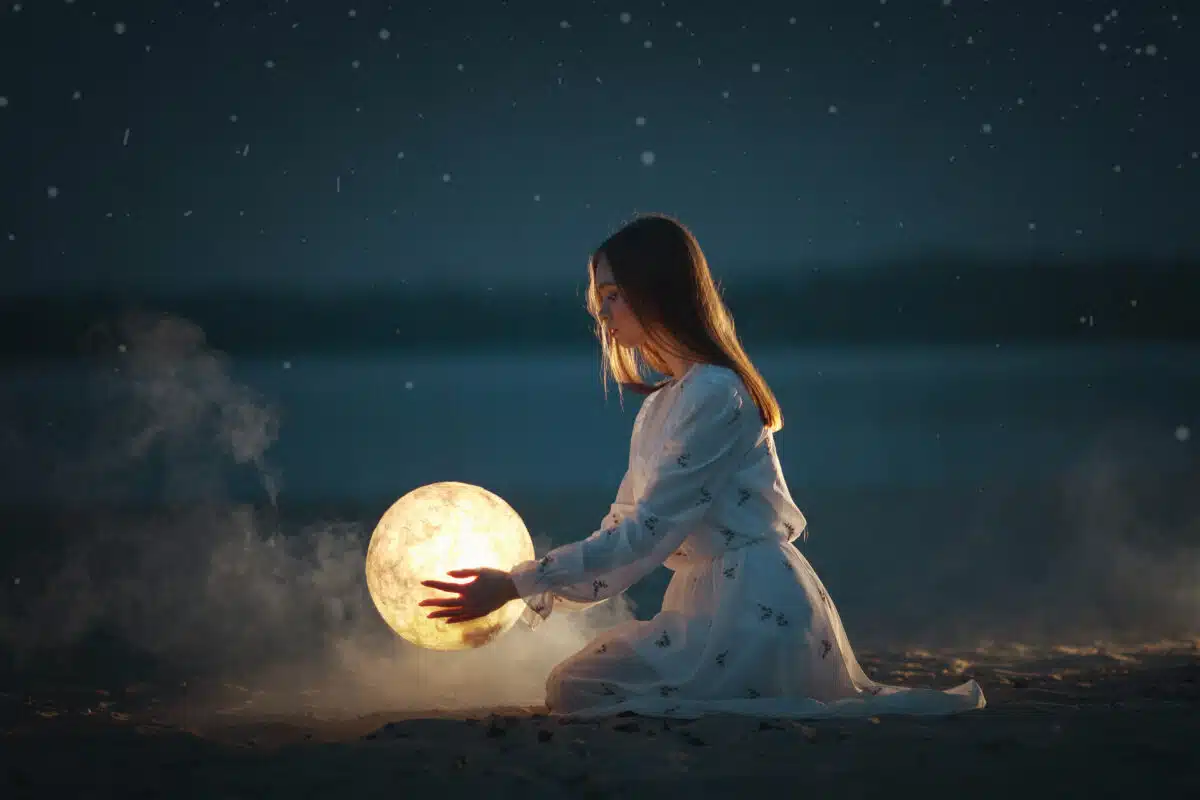
“As Some Mysterious Wanderer of the Skies” by Henry Jerome Stockard
As some mysterious wanderer of the skies,
Emerging from the deeps of outer dark,
Traces for once in human ken the arc
Of its stupendous curve, then swiftly flies
Out through some orbit veiled in space, which lies
Where no imagination may embark,—
Some onward-reaching track that God did mark
For all eternity beneath his eyes,—
So comes the soul forth from Creation’s vast;
So clothed with mystery moves through mortal sight;
Then sinks away into the Great Unknown.
What systems it hath seen in all the past,
What worlds shall blaze upon its future flight
Thou knowest, eternal God, and thou alone!
“The Happy Wanderer” by Percy Addleshaw
He is the happy wanderer, who goes
Singing upon his way, with eyes awake
To every scene, with ears alert to take
The sweetness of all sounds; who loves and knows
The secrets of the highway, and the rose
Holds fairer for the wounds the briars make;
Who welcomes rain, that he his thirst may slake,—
The sun, because it dries his dripping clothes;
Treasures experience beyond all store,
Careless if pain or pleasure he shall win,
So that his knowledge widens more and more
Ready each hour to worship or to sin;
Until tired, wise, content, he halts before
The sign o’ the Grave, a cool and quiet inn.
“A Farewell” by Langston Hughes
With gypsies and sailors,
Wanderers of the hills and seas,
I go to seek my fortune.
With pious folk and fair
I must have a parting.
But you will not miss me,––
You who live between the hills
And have never seen the seas.

“The Wanderer” by Sara Teasdale
I saw the sunset-colored sands,
The Nile like flowing fire between,
Where Rameses stares forth serene,
And Ammon’s heavy temple stands.
I saw the rocks where long ago,
Above the sea that cries and breaks,
Swift Perseus with Medusa’s snakes
Set free the maiden white like snow.
And many skies have covered me,
And many winds have blown me forth,
And I have loved the green, bright north,
And I have loved the cold, sweet sea.
But what to me are north and south,
And what the lure of many lands,
Since you have leaned to catch my hands
And lay a kiss upon my mouth.
“Wanderers” by George Sylvester Viereck
Sweet is the highroad when the skylarks call,
When we and Love go rambling through the land.
But shall we still walk gayly, hand in hand,
At the road’s turning and the twilight’s fall?
Then darkness shall divide us like a wall,
And uncouth evil nightbirds flap their wings;
The solitude of all created things
Will creep upon us shuddering like a pall.
This is the knowledge I have wrung from pain:
We, yea, all lovers, are not one, but twain,
Each by strange wisps to strange abysses drawn;
But through the black immensity of night
Love’s little lantern, like a glowworm’s, bright,
May lead our steps to some stupendous dawn.
“Wanderer in the Evening” by Alfred Lichtenstein
Kuno Kohn sings:
Dusty Sunday
Lies burned to pieces.
Charred coolness
Mothers the land.
Dissolute longing
Gapes once again.
Dreams and tears
Stream upward.
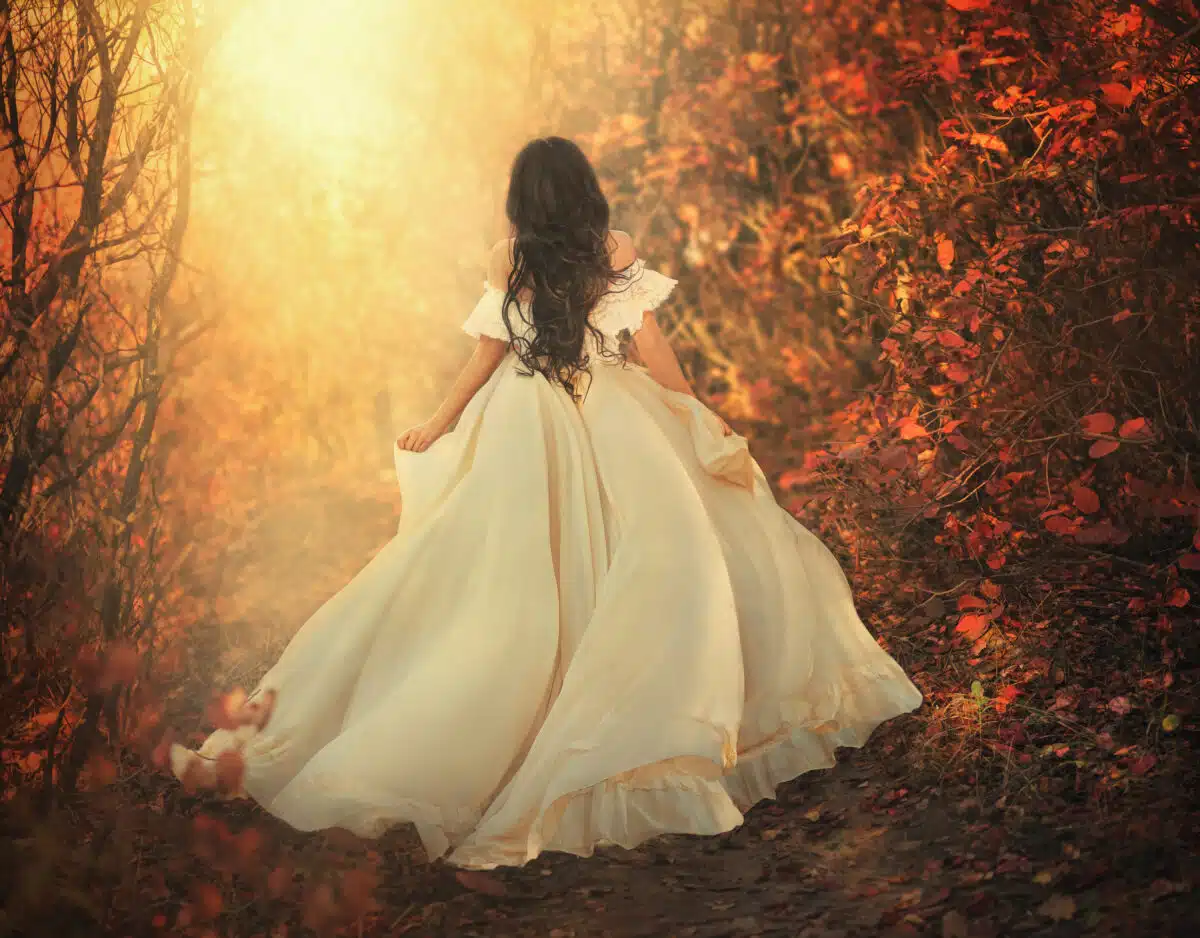
“As Toilsome I Wander’d Virginia’s Woods” by Walt Whitman
As toilsome I wander’d Virginia’s woods,
To the music of rustling leaves kick’d by my feet, (for ’twas autumn,)
I mark’d at the foot of a tree the grave of a soldier;
Mortally wounded he and buried on the retreat, (easily all could understand,)
The halt of a mid-day hour, when up! no time to lose–yet this sign left, On a tablet scrawl’d and nail’d on the tree by the grave,
Bold, cautious, true, and my loving comrade.
Long, long I muse, then on my way go wandering,
Many a changeful season to follow, and many a scene of life,
Yet at times through changeful season and scene, abrupt, alone, or in the crowded street,
Comes before me the unknown soldier’s grave, comes the inscription rude in Virginia’s woods,
Bold, cautious, true, and my loving comrade.
“Fragment: A Wanderer” by Percy Bysshe Shelley
He wanders, like a day-appearing dream,
Through the dim wildernesses of the mind;
Through desert woods and tracts, which seem
Like ocean, homeless, boundless, unconfined.
“He Hears the Cry of the Sedge” by William Butler Yeats
I wander by the edge
Of this desolate lake
Where wind cries in the sedge:
i(Until the axle break
That keeps the stars in their round,
And hands hurl in the deep
The banners of East and West,
And the girdle of light is unhound,
Your breast will not lie by the breast
Of your beloved in sleep.)
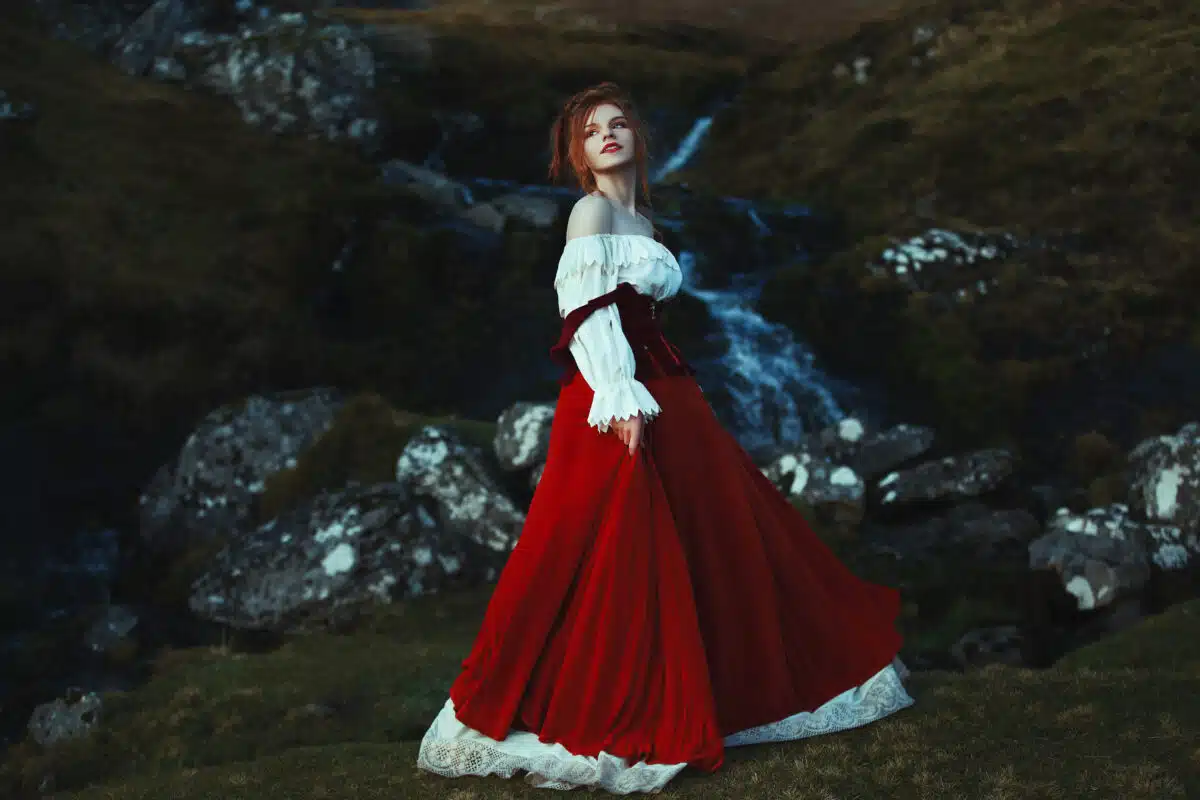
“Wanderers” by George Sylvester Viereck
Sweet is the highroad when the skylarks call,
When we and Love go rambling through the land.
But shall we still walk gayly, hand in hand,
At the road’s turning and the twilight’s fall?
Then darkness shall divide us like a wall,
And uncouth evil nightbirds flap their wings;
The solitude of all created things
Will creep upon us shuddering like a pall.
This is the knowledge I have wrung from pain:
We, yea, all lovers, are not one, but twain,
Each by strange wisps to strange abysses drawn;
But through the black immensity of night
Love’s little lantern, like a glowworm’s, bright,
May lead our steps to some stupendous dawn.
“The Discovery” by Thomas Hardy
I wandered to a crude coast
Like a ghost;
Upon the hills I saw fires –
Funeral pyres
Seemingly and heard breaking
Waves like distant cannonades that set the land shaking.
And so I never once guessed
A Love-nest,
Bowered and candle-lit, lay
In my way,
Till I found a hid hollow,
Where I burst on her my heart could not but follow.
Famous Poems About Wandering
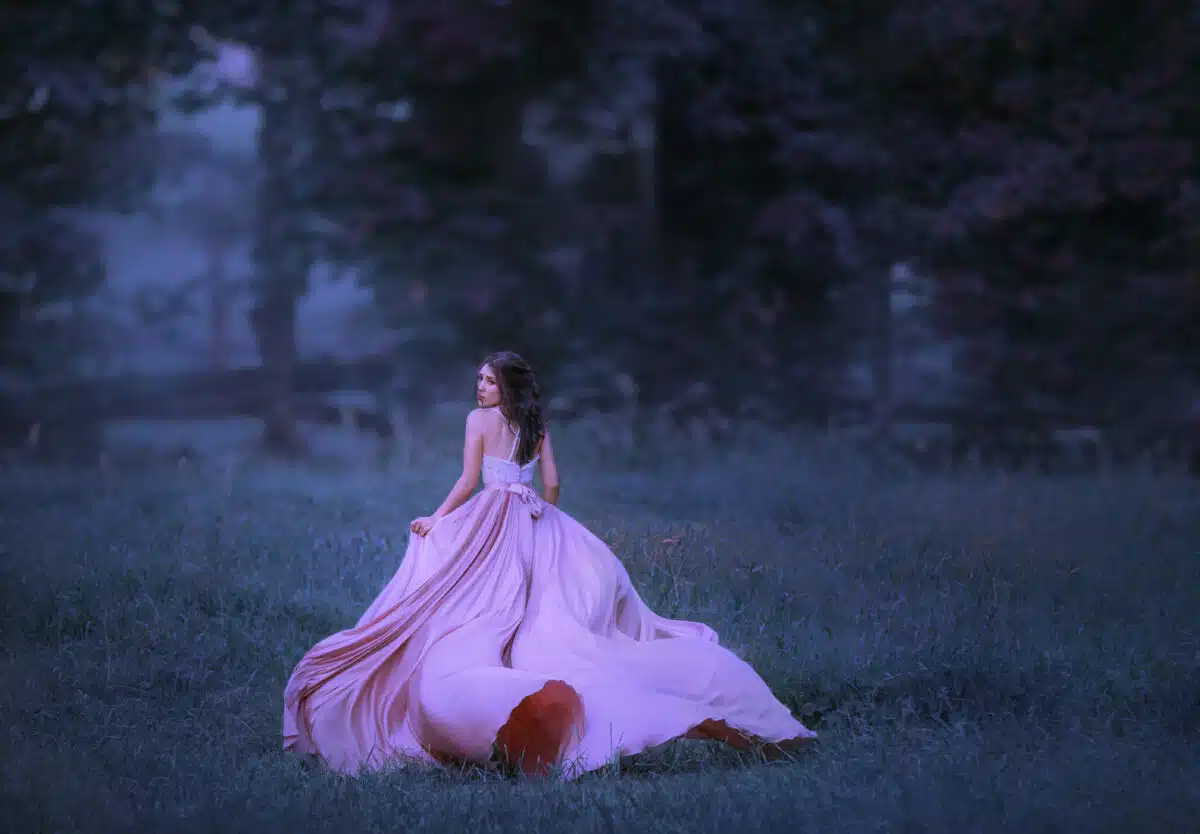
“Wandered” by William Arthur Dunkerley (John Oxenham)
The wind blows shrill along the hill, —
Black is the night and cold–
The sky hangs low with its weight of snow,
And the drifts are deep on the wold.
But what care I for wind or snow?
And what care I for the cold?
Oh … where is my lamb–
My one ewe lamb–
That strayed from the fold?
The beasts are safely gathered in,
–Black is the night and cold–
They are snug and warm, and safe from harm,
In stall and byre and fold.
And the dogs and I, by the blazing fire,
Care nought for the snow and the cold.
Oh … where is my lamb–
My one ewe lamb–
That strayed from the fold?
The barns are bursting with their store
Of grain like yellow gold;
A full, fat year has brought good cheer, —
Black is the night and cold.–
But … What care I for teeming barns?
And what care I for gold?
Oh … where is my lamb–
My one ewe lamb–
That strayed from the fold?
In the great kitchen, maids and men, —
Black is the night and cold–
Laugh loud and long, with jest and song,
And merry revel hold.
Let them laugh and sing, let them have their fling,
But for me–I am growing old.
Oh … where is my lamb–
My one ewe lamb–
That strayed from the fold?
The old house moans, and sighs and groans,
–Black is the night and cold–
We have seen brave times, you and I, old friend,
But now–we are growing old.
We have stood foursquare to many a storm,
But now–we are growing old.
Oh … where is my lamb–
My one ewe lamb–
That strayed from the fold?
Her mother sleeps on the hill out there,
–Black is the night and cold,–
She is free from care, she is happier there,
Beneath the warm brown mould.
And I’ve sometimes hoped they may have met,
And the end of the tale be told.
Ah … where is our lamb–
Our one ewe lamb–
That strayed from the fold?
Was that a branch that shed its load?
–Black is the night and cold,–
Or–was it a footstep in the snow–
A timid footstep–halting, slow?
Ah me! I am getting old!
Is that a tapping–soft and low?
Can it be … I thought I heard … but no, ‘
Twas only a branch that shed its snow,
— God’s truth! I am getting old!
For I thought … maybe
It was my lamb
Come home again to the fold.
Dear Lord! a hand at the frozen pane!
–White on the night’s black cold–
O my lamb! my lamb! are you come again?
My dear lost lamb, are you come again?
Are you come again to the fold?
It is!… It is!… Now I thank Thee, Lord,
For Thy Mercies manifold!
She is come again!
She is home again!
My lamb that strayed from the fold!
“The Wander-Lovers.” by Bliss Carman
Down the world with Marna!
That’s the life for me!
Wandering with the wandering wind,
Vagabond and unconfined!
Roving with the roving rain
Its unboundaried domain!
Kith and kin of wander-kind,
Children of the sea!
Petrels of the sea-drift!
Swallows of the lea!
Arabs of the whole wide girth
Of the wind-encircled earth!
In all climes we pitch our tents,
Cronies of the elements,
With the secret lords of birth
Intimate and free.
All the seaboard knows us
From Fundy to the Keys;
Every bend and every creek
Of abundant Chesapeake;
Ardise hills and Newport coves
And the far-off orange groves,
Where Floridian oceans break,
Tropic tiger seas.
Down the world with Marna,
Tarrying there and here!
Just as much at home in Spain
As in Tangier or Touraine!
Shakespeare’s Avon knows us well,
And the crags of Neufchâtel;
And the ancient Nile is fain
Of our coming near.
Down the world with Marna,
Daughter of the air!
Marna of the subtle grace,
And the vision in her face!
Moving in the measures trod
By the angels before God!
With her sky-blue eyes amaze
And her sea-blue hair!
Marna with the trees’ life
In her veins a-stir!
Marna of the aspen heart
Where the sudden quivers start!
Quick-responsive, subtle, wild!
Artless as an artless child,
Spite of all her reach of art!
Oh, to roam with her!
Marna with the wind’s will,
Daughter of the sea!
Marna of the quick disdain,
Starting at the dream of stain!
At a smile with love aglow,
At a frown a statued woe,
Standing pinnacled in pain
Till a kiss sets free!
Down the world with Marna,
Daughter of the fire!
Marna of the deathless hope,
Still alert to win new scope
Where the wings of life may spread
For a flight unhazarded!
Dreaming of the speech to cope
With the heart’s desire!
Marna of the far quest
After the divine!
Striving ever for some goal
Past the blunder-god’s control!
Dreaming of potential years
When no day shall dawn in fears!
That’s the Marna of my soul,
Wander-bride of mine!
“The Wanderer” by Alfred Lord Tennyson
The gleam of household sunshine ends,
And here no longer can I rest;
Farewell! – You will not speak, my friends,
Unfriendly of your parted guest.
O well for him that finds a friend,
Or makes a friend where’er he come,
And loves the world from end to end,
And wanders on from home to home!
O happy he, and fit to live,
On whom a happy home has power
To make him trust his life, and give
His fealty to the halcyon hour!
I count you kind, I hold you true;
But what may follow who can tell?
Give me a hand-and you-and you-
And deem me grateful, and farewell!
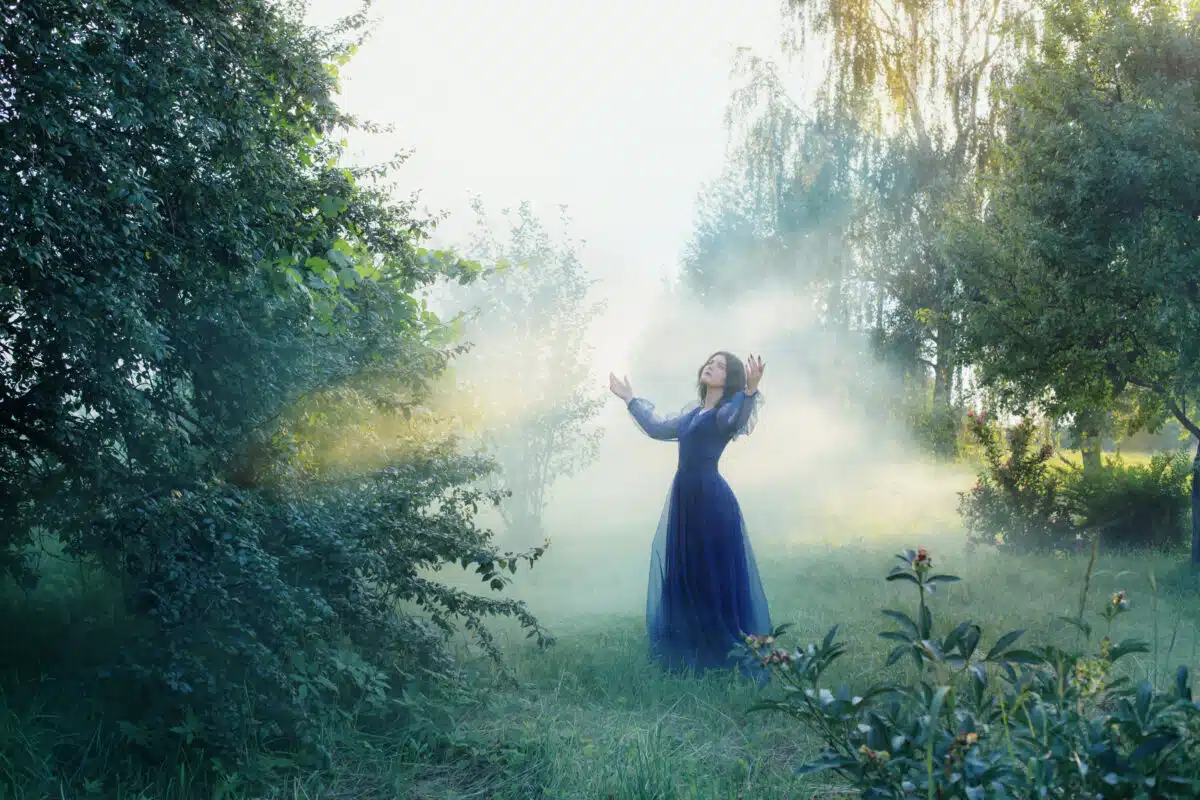
“The Wanderer” by Madison Julius Cawein
Between the death of day and birth of night,
By War’s red light,
I met with one in trailing sorrows clad,
Whose features had
The look of Him who died to set men right.
Around him many horrors, like great worms,
Terrific forms,
Crawled, helmed like hippogriff and rosmarine,
Gaunt and obscene,
Urged on to battle with a thousand arms.
Columns of steel, and iron belching flame,
Before them came:
And cities crumbled; and amid them trod
Havoc, their god,
With Desolation that no tongue may name.
And out of Heaven came a burning breath,
And on it Death,
Riding: before him, huge and bellowing herds
Of beasts, like birds,
Bat-winged and demon, nothing conquereth.
Hag-lights went by, and Fear that shrieks and dies;
And mouths, with cries
Of famine; and the madness of Despair;
And everywhere
Curses, like kings, with ever-burning eyes.
And, lo! the shadow shook and cried a name,
That grew a flame
Above the world, and said, “Give heed! give heed!
See how they bleed!
My wounds! my wounds! Was it for this I came?
“Where is the love for which I shed my blood?
And where the good
I preached and died for? Lo! ye have denied
And crucified
Me here again, who swore me brotherhood!”
Then overhead the vault of night was rent:
The firmament
Winged thunder over of aerial craft;
And Battle laughed Titanic laughter as its way it went.
“The Wanderer” by Sir Arthur Conan Doyle
‘Twas in the shadowy gloaming
Of a cold and wet March day,
That a wanderer came roaming
From countries far away.
Scant raiment had he round him,
Nor purse, nor worldly gear,
Hungry and faint we found him,
And bade him welcome here.
His weary frame bent double,
His eyes were old and dim,
His face was writhed with trouble
Which none might share with him.
His speech was strange and broken,
And none could understand,
Such words as might be spoken
In some far distant land.
We guessed not whence he hailed from,
Nor knew what far-off quay
His roving bark had sailed from
Before he came to me.
But there he was, so slender,
So helpless and so pale,
That my wife’s heart grew tender
For one who seemed so frail.
She cried, “But you must bide here!
You shall no further roam.
Grow stronger by our side here,
Within our moorland home!”
She laid her best before him,
Homely and simple fare,
And to his couch she bore him
The raiment he should wear.
To mine he had been welcome,
My suit of russet brown,
But she had dressed our weary guest
In a loose and easy gown.
And long in peace he lay there,
Brooding and still and weak,
Smiling from day to day there
At thoughts he would not speak.
The months flowed on, but ever
Our guest would still remain,
Nor made the least endeavour
To leave our home again.
He heeded not for grammar,
Nor did we care to teach,
But soon he learned to stammer
Some words of English speech.
With these our guest would tell us
The things that he liked best,
And order and compel us
To follow his behest.
He ruled us without malice,
But as if he owned us all,
A sultan in his palace
With his servants at his call.
Those calls came fast and faster,
Our service still we gave,
Till I who had been master
Had grown to be his slave.
He claimed with grasping gestures
Each thing of price he saw,
Watches and rings and vestures,
His will the only law.
In vain had I commanded,
In vain I struggled still,
Servants and wife were banded
To do the stranger’s will.
And then in deep dejection
It came to me one day,
That my own wife’s affection
Had been beguiled away.
Our love had known no danger,
So certain had it been!
And now to think a stranger
Should dare to step between.
I saw him lie and harken
To the little songs she sung,
And when the shadows darken
I could hear his lisping tongue.
They would sit in chambers shady,
When the light was growing dim,
Ah, my fickle-hearted lady!
With your arm embracing him.
So, at last, lest he divide us,
I would put them to the test.
There was no one there beside us,
Save this interloping guest.
So I took my stand before them,
Very silent and erect,
My accusing glance passed o’er them,
Though with no observed effect.
But the lamp light shone upon her,
And I saw each tell-tale feature,
As I cried, “Now, on your honour,
Do or don’t you love the creature?”
But her answer seemed evasive,
It was “Ducky-doodle-doo!
If his mummy loves um babby,
Doesn’t daddums love um too?”
“The Wanderer” by Thomas Hardy
There is nobody on the road
But I,
And no beseeming abode
I can try
For shelter, so abroad I must lie.
The stars feel not far up,
And to be
The lights by which I sup
Glimmeringly,
Set out in a hollow cup
Over me.
They wag as though they were
Panting for joy
Where they shine, above all care,
And annoy,
And demons of despair –
Life’s alloy.
Sometimes outside the fence
Feet swing past,
Clock-like, and then go hence,
Till at last There is a silence, dense,
Deep, and vast.
A wanderer, witch-drawn
To and fro,
To-morrow, at the dawn,
On I go,
And where I rest anon
Do not know!
Yet it’s meet this bed of hay
And roofless plight;
For there’s a house of clay,
My own, quite,
To roof me soon, all day
And all night.

“The Wanderer” by Alan Seeger
To see the clouds his spirit yearned toward so
Over new mountains piled and unploughed waves,
Back of old-storied spires and architraves
To watch Arcturus rise or Fomalhaut,
And roused by street-cries in strange tongues when day
Flooded with gold some domed metropolis,
Between new towers to waken and new bliss
Spread on his pillow in a wondrous way:
These were his joys. Oft under bulging crates,
Coming to market with his morning load,
The peasant found him early on his road
To greet the sunrise at the city-gates, –
There where the meadows waken in its rays,
Golden with mist, and the great roads commence,
And backward, where the chimney-tops are dense,
Cathedral-arches glimmer through the haze.
White dunes that breaking show a strip of sea,
A plowman and his team against the blue,
Swiss pastures musical with cowbells, too,
And poplar-lined canals in Picardie,
And coast-towns where the vultures back and forth
Sail in the clear depths of the tropic sky,
And swallows in the sunset where they fly
Over gray Gothic cities in the north,
And the wine-cellar and the chorus there,
The dance-hall and a face among the crowd, –
Were all delights that made him sing aloud
For joy to sojourn in a world so fair.
Back of his footsteps as he journeyed fell
Range after range; ahead blue hills emerged.
Before him tireless to applaud it surged
The sweet interminable spectacle.
And like the west behind a sundown sea
Shone the past joys his memory retraced,
And bright as the blue east he always faced
Beckoned the loves and joys that were to be.
From every branch a blossom for his brow
He gathered, singing down Life’s flower-lined road,
And youth impelled his spirit as he strode
Like winged Victory on the galley’s prow.
That Loveliness whose being sun and star,
Green Earth and dawn and amber evening robe,
That lamp whereof the opalescent globe
The season’s emulative splendors are,
That veiled divinity whose beams transpire
From every pore of universal space,
As the fair soul illumes the lovely face –
That was his guest, his passion, his desire.
His heart the love of Beauty held as hides
One gem most pure a casket of pure gold.
It was too rich a lesser thing to hold;
It was not large enough for aught besides.
“Wanderers” by James Hebblethwaite
As I rode in the early dawn,
While stars were fading white,
I saw upon a grassy slope
A camp-fire burning bright;
With tent behind and blaze before,
Three loggers in a row
Sang all together joyously
Pull up the stakes and go!
As I rode on by Eagle Hawk,
The wide blue deep of air,
The wind through the glittering leaves,
The flowers so sweet and fair,
The thunder of the rude salt waves,
The creek’s soft overflow,
All joined in chorus to the words
Pull up the stakes and go!
Now by the tent on forest skirt,
By odour of the earth,
By sight and scent of morning smoke,
By evening camp-fire’s mirth,
By deep-sea call and foaming green,
By new stars’ gleam and glow,
By summer trails in antique lands
Pull up the stakes and go!
The world is wide, and we are young,
And sounding marches beat,
And passion pipes her sweetest call
In lane and field and street;
So rouse the chorus, brothers all,
We’ll something have to show
When Death comes round and strikes our tent
Pull up the stakes and go!
“The Wandering Bard” by Thomas Moore
What life like that of the bard can be–
The wandering bard, who roams as free
As the mountain lark that o’er him sings,
And, like that lark, a music brings
Within him, where’er he comes or goes,–
A fount that for ever flows!
The world’s to him like some playground,
Where fairies dance their moonlight round;–
If dimmed the turf where late they trod,
The elves but seek some greener sod;
So, when less bright his scene of glee,
To another away flies he!
Oh, what would have been young Beauty’s doom,
Without a bard to fix her bloom?
They tell us, in the moon’s bright round,
Things lost in this dark world are found;
So charms, on earth long past and gone,
In the poet’s lay live on.–
Would ye have smiles that ne’er grow dim?
You’ve only to give them all to him.
Who, with but a touch of Fancy’s wand,
Can lend them life, this life beyond,
And fix them high, in Poesy’s sky,–
Young stars that never die!
Then, welcome the bard where’er he comes,–
For, tho’ he hath countless airy homes,
To which his wing excursive roves,
Yet still, from time to time, he loves
To light upon earth and find such cheer
As brightens our banquet here.
No matter how far, how fleet he flies,
You’ve only to light up kind young eyes,
Such signal-fires as here are given,–
And down he’ll drop from Fancy’s heaven,
The minute such call to love or mirth
Proclaims he’s wanting on earth!
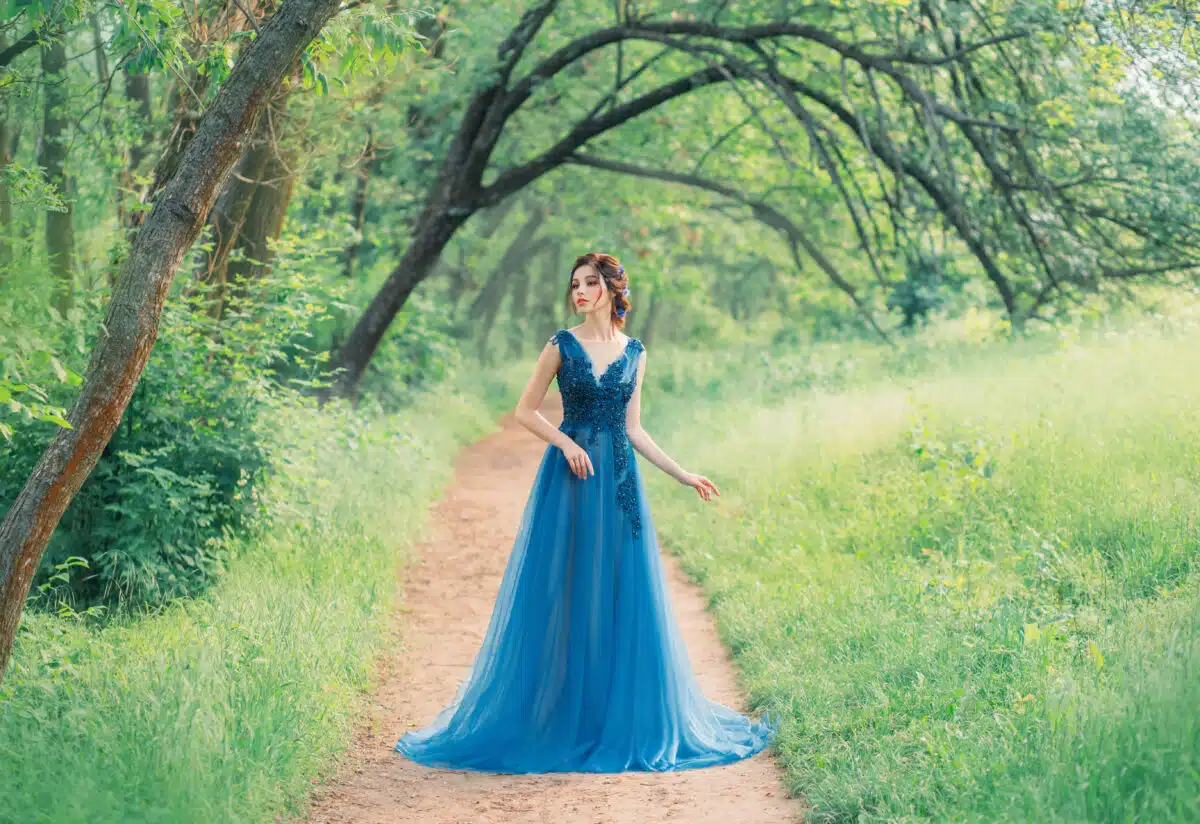
“The Wandering Bard” by Thomas Moore
What life like that of the bard can be–
The wandering bard, who roams as free
As the mountain lark that o’er him sings,
And, like that lark, a music brings
Within him, where’er he comes or goes,–
A fount that for ever flows!
The world’s to him like some playground,
Where fairies dance their moonlight round;–
If dimmed the turf where late they trod,
The elves but seek some greener sod;
So, when less bright his scene of glee,
To another away flies he!
Oh, what would have been young Beauty’s doom,
Without a bard to fix her bloom?
They tell us, in the moon’s bright round,
Things lost in this dark world are found;
So charms, on earth long past and gone,
In the poet’s lay live on.–
Would ye have smiles that ne’er grow dim?
You’ve only to give them all to him.
Who, with but a touch of Fancy’s wand,
Can lend them life, this life beyond,
And fix them high, in Poesy’s sky,–
Young stars that never die!
Then, welcome the bard where’er he comes,–
For, tho’ he hath countless airy homes,
To which his wing excursive roves,
Yet still, from time to time, he loves
To light upon earth and find such cheer
As brightens our banquet here.
No matter how far, how fleet he flies,
You’ve only to light up kind young eyes,
Such signal-fires as here are given,–
And down he’ll drop from Fancy’s heaven,
The minute such call to love or mirth
Proclaims he’s wanting on earth!
“The Wanderlust” by Robert William Service
The Wanderlust has lured me to the seven lonely seas,
Has dumped me on the tailing-piles of dearth;
The Wanderlust has haled me from the morris chairs of ease,
Has hurled me to the ends of all the earth.
How bitterly I’ve cursed it, oh, the Painted Desert knows,
The wraithlike heights that hug the pallid plain,
The all-but-fluid silence, – yet the longing grows and grows,
And I’ve got to glut the Wanderlust again.
Soldier, sailor, in what a plight I’ve been!
Tinker, tailor, oh what a sight I’ve seen!
And I’m hitting the trail in the morning, boys,
And you won’t see my heels for dust;
For it’s “all day” with you
When you answer the cue
Of the Wan-der-lust.
The Wanderlust has got me . . . by the belly-aching fire,
By the fever and the freezing and the pain;
By the darkness that just drowns you, by the wail of home desire,
I’ve tried to break the spell of it – in vain.
Life might have been a feast for me, now there are only crumbs;
In rags and tatters, beggar-wise I sit;
Yet there’s no rest or peace for me, imperious it drums,
The Wanderlust, and I must follow it.
Highway, by-way, many a mile I’ve done;
Rare way, fair way, many a height I’ve won;
But I’m pulling my freight in the morning, boys,
And it’s over the hills or bust;
For there’s never a cure
When you list to the lure
Of the Wan-der-lust.
The Wanderlust has taught me . . . it has whispered to my heart Things all you stay-at-homes will never know.
The white man and the savage are but three short days apart,
Three days of cursing, crawling, doubt and woe.
Then it’s down to chewing muclucs, to the water you can EAT,
To fish you bolt with nose held in your hand.
When you get right down to cases, it’s King’s Grub that rules the races,
And the Wanderlust will help you understand.
Haunting, taunting, that is the spell of it;
Mocking, baulking, that is the hell of it;
But I’ll shoulder my pack in the morning, boys,
And I’m going because I must;
For it’s so-long to all
When you answer the call
Of the Wan-der-lust.
The Wanderlust has blest me . . . in a ragged blanket curled,
I’ve watched the gulf of Heaven foam with stars;
I’ve walked with eyes wide open to the wonder of the world,
I’ve seen God’s flood of glory burst its bars.
I’ve seen the gold a-blinding in the riffles of the sky,
Till I fancied me a bloated plutocrat;
But I’m freedom’s happy bond-slave, and I will be till I die,
And I’ve got to thank the Wanderlust for that.
Wild heart, child heart, all of the world your home.
Glad heart, mad heart, what can you do but roam?
Oh, I’ll beat it once more in the morning, boys,
With a pinch of tea and a crust;
For you cannot deny
When you hark to the cry
Of the Wan-der-lust.
The Wanderlust will claim me at the finish for its own.
I’ll turn my back on men and face the Pole.
Beyond the Arctic outposts I will venture all alone;
Some Never-never Land will be my goal.
Thank God! there’s none will miss me, for I’ve been a bird of flight; And in my moccasins I’ll take my call;
For the Wanderlust has ruled me,
And the Wanderlust has schooled me,
And I’m ready for the darkest trail of all.
Grim land, dim land, oh, how the vastness calls!
Far land, star land, oh, how the stillness falls!
For you never can tell if it’s heaven or hell,
And I’m taking the trail on trust;
But I haven’t a doubt
That my soul will leap out
On its Wan-der-lust.
“The Wanderer” by Ameen Rihani
I wander among the hills of alien lands
Where Nature her prerogative resigns
To Man; where Comfort in her shack reclines
And all the arts and sciences commands.
But in my soul
The eastern billows roll—
I hear the voices of my native strands.
My lingering eyes, a lonely hemlock fills
With grace and splendor rising manifold;
Beneath her boughs the maples spread their gold
And at her feet, the silver of rills.
But in my heart
A peasant void of art
Echoes the voices of my native hills.
On every height a studied art confines
All human joy in social pulchritude;
The boxwood frowns where beckoning birches stood,
And where the thrushes caroled Fashion dines.
But through the spreading cheer
The shepherd’s reed I hear
Beneath my Lebanon terebinths and pines.
And though no voices here are heard of toil,
Nor accents least of sorrow, nor the din
Of multitudes, nor even at the Inn
The City is permitted aught to spoil,
Yet in my breast,
A shack at best,
Laments the mother of my native soil.
Even where the sumptuous solitudes deny
A shelter to a bird or butterfly,
As in the humblest dwelling of the dale
A gracious welcome’s shown the passer-by;
But evermore clear
Allwhere I hear
The calling of my native hut and sky.
Land of my birth! a handful of thy sod
Resuscitates the flower of my faith;
For whatsoever the seer of science sayth,
Thou art the cradle and the tomb of God;
And forever I behold
A vision old
Of Beauty weeping where He once hath trod.

“Wanderlust” by Paul Cameron Brown
Who administers to my needs?
Is it the dandelion, so ant-encrusted, that
yellow pollen dangles from a shiny abdomen
suggestive of some actor’s
smeared and garish make-up?
Or the cicada’s song,
difficult to describe,
laundering thick summer heat?
Perhaps, then, the Red Admiral butterfly
especially active at the close of day and drawn
to wooden lawn-furniture or the exposed human limb?
If none of these
breathes vigour or tonic
through my nostrils,
what of tubs of fresh water?
Take pea-pods for crude, rudimentary boats
and children as make-shift sailors,
then they both shall spy the secrets of seas.
Bold harbours will be their cues,
astrolabes their hatchets in which
to chart many a perilous adventure.
A volume of Tom Swift and his Motorboat
tames the haggard breast,
soothes the savage beast.
A trip to the fruit-cellar
beaded with moisture
and clammy with imaginary threat,
chastens the cobweb from the
dusty ledge and sees a privet-hedge
hawk-moth trapped against the
window-pane (a dark spot pressed much like
a pirate’s patch against both time & space).
If meandering and nearing journey’s end,
think twice. Better red than dead. Brooding
MacIntosh apples stain a slippery floor but
the door to the orchard is always ajar.
By night, an “I And The Village” Chagall painting
draws a lad (and landscape) to stare and stare.
Thickets of wild-grape, strawberry tendrils,
two hares boxing in the meadow, a Winterspoon
or Whip-Poor-Will towering above groves of walnut, lilac.
Night air is fragrant (and lush) through a peep-hole
and gate-way to the stars.
Barns with ricks contain pitchforks
like a mis-shapen mask protruding ever
so faintly sinister in silhouette through
a visionary sky.
Remnants of ferret skin, lie interrupted,
upon entering the chicken-coop.
The soldier drinks, his tea and egg-cup abandoned.
I don’t have to go anywhere.
Dark and moody, there is an
arsenal of thought with stout
marshal batons in my knapsack.
The power to be led (and lead)
stiff memory in rum kegs and wine casks.
The brooding entrance
to another world,
if not in the palm of my hand,
then very nearly
a shout and stone’s throw away.
“Song of Oktahutche” by Alexander Posey
Far, far, far are my silver waters drawn;
The hills embrace me loth to let me go;
The maidens think me fair to look upon,
And trees lean over glad to hear me flow.
Thro’ field and valley, green because of me,
I wander, wander to the distant sea.
Thro’ lonely places and thro’ crowded ways;
Thro’ noise of strife and thro’ the solitude,
And on thro’ cloudy days and sunny days,
I journey till I meet, in sisterhood,
The broad Canadian, red with the sunset,
Now calm, now raging in a mighty fret!
On either hand, in a grand colonnade,
The cottonwoods rise in the azure sky,
And purple mountains cast a purple shade
As I, now grave, now laughing, pass them by;
And birds of air dip bright wings in my tide,
In sunny reaches where I noiseless glide.
O’er shoals of mossy rocks and mussel shells,
Blue over spacious beds of amber sand,
By cliffs and coves and glens where Echo dwells—
Elusive spirit of the shadow-land—
Forever blest and blessing, do I go,
A wid’ning in the morning’s roseate glow.
Though I sing my song in a minor key,
Broad lands and fair attest the good I do;
Though I carry no white sails to the sea,
Towns nestle in the vales I wander thro’;
And quails are whistling in the waving grain,
And herds are scattered o’er the verdant plain.
“The Wanderers” by Robert Browning
Over the sea our galleys went,
With cleaving prows in order brave
To a speeding wind and a bounding wave—
A gallant armament:
Each bark built out of a forest-tree
Left leafy and rough as first it grew,
And nail’d all over the gaping sides,
Within and without, with black bull-hides,
Seethed in fat and suppled in flame,
To bear the playful billows’ game;
So, each good ship was rude to see,
Rude and bare to the outward view,
But each upbore a stately tent
Where cedar pales in scented row
Kept out the flakes of the dancing brine,
And an awning droop’d the mast below,
In fold on fold of the purple fine,
That neither noontide nor star-shine
Nor moonlight cold which maketh mad,
Might pierce the regal tenement.
When the sun dawn’d, O, gay and glad
We set the sail and plied the oar;
But when the night-wind blew like breath,
For joy of one day’s voyage more,
We sang together on the wide sea,
Like men at peace on a peaceful shore;
Each sail was loosed to the wind so free,
Each helm made sure by the twilight star,
And in a sleep as calm as death,
We, the voyagers from afar,
Lay stretch’d along, each weary crew
In a circle round its wondrous tent
Whence gleam’d soft light and curl’d rich scent,
And with light and perfume, music too:
So the stars wheel’d round, and the darkness pass’d,
And at morn we started beside the mast,
And still each ship was sailing fast!
Now, one morn, land appear’d—a speck
Dim trembling betwixt sea and sky—
‘Avoid it,’ cried our pilot, ‘check
The shout, restrain the eager eye!’
But the heaving sea was black behind
For many a night and many a day,
And land, though but a rock, drew nigh;
So we broke the cedar pales away,
Let the purple awning flap in the wind,
And a statue bright was on every deck!
We shouted, every man of us,
And steer’d right into the harbour thus,
With pomp and pæan glorious.
A hundred shapes of lucid stone!
All day we built its shrine for each,
A shrine of rock for every one,
Nor paused till in the westering sun
We sat together on the beach
To sing because our task was done;
When lo! what shouts and merry songs!
What laughter all the distance stirs!
A loaded raft with happy throngs
Of gentle islanders!
‘Our isles are just at hand,’ they cried, ‘
Like cloudlets faint in even sleeping;
Our temple-gates are open’d wide,
Our olive-groves thick shade are keeping
For these majestic forms’—they cried.
O, then we awoke with sudden start
From our deep dream, and knew, too late,
How bare the rock, how desolate,
Which had received our precious freight:
Yet we call’d out—‘Depart!
Our gifts, once given, must here abide:
Our work is done; we have no heart
To mar our work,’—we cried.
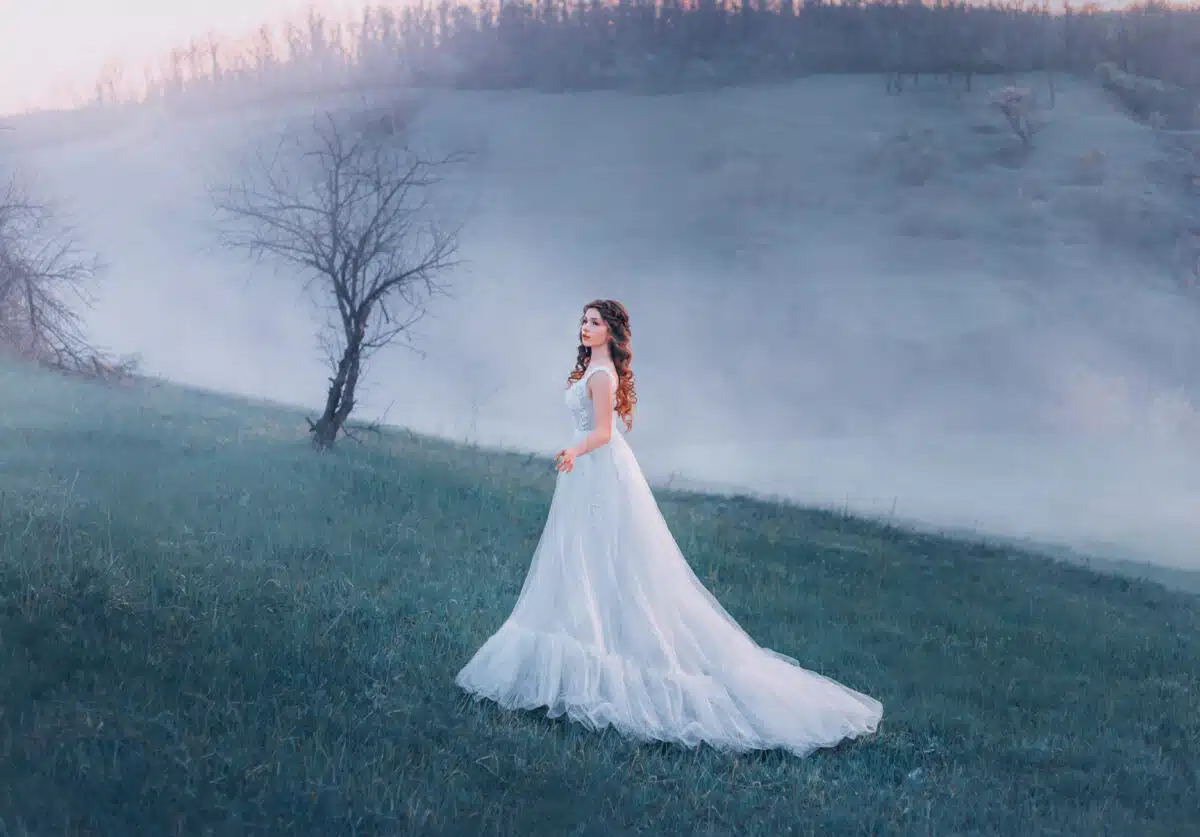
“I Wandered Lonely as a Cloud” by William Wordsworth
I wandered lonely as a Cloud
That floats on high o’er vales and hills,
When all at once I saw a crowd,
A host, of golden Daffodils;
Beside the lake, beneath the trees,
Fluttering and dancing in the breeze.
Continuous as the stars that shine
And twinkle on the milky way,
They stretched in never-ending line
Along the margin of a bay:
Ten thousand saw I at a glance,
Tossing their heads in sprightly dance.
The waves beside them danced; but they
Out-did the sparkling waves in glee:—
A poet could not but be gay,
In such a jocund company;
I gazed—and gazed—but little thought
What wealth the show to me had brought:
For oft, when on my couch I lie
In vacant or in pensive mood,
They flash upon that inward eye
Which is the bliss of solitude;
And then my heart with pleasure fills,
And dances with the Daffodils.
“Forgotten Among the Lilies” by Augusta Theodosia Drane
Through the dark night I wander on alone,
And, as one blinded, grope my weary way,
Without a lamp to shed its guiding ray;
I wander on unseen, and seeing none,
And caring to behold but only One
I see not, yet my heart will give me light,
And safer than the noonday sun will guide
To where the Bridegroom waiteth for the Bride;
So walking on in faith and not by sight,
I cannot fear but He will guide me right.…
Forgotten ’mid the lilies; for I feel
Their gentle blossoms wave above my head;
I breathe the magic perfume which they shed,
As though my bleeding wounds they fain would heal,
And from my heart its aching sorrow steal.
A sad, sweet lot—I needs must call it sweet;
My cares, like withered buds, I cast aside,
And reck but little what may next betide;
The days and years fly past on pinions fleet,
Amid these lilies crushed beneath His feet.
Forgotten and abandoned;—yet withal
Leaning my heart upon my only Love:
Nay, raise me not, I do not care to move;
Soon I shall hear His gentle footstep fall,
And lift my eyes, and answer to His call.
Till then among the lilies let me lie;
See, I have cast my idle cares away:
Howe’er it be, I am content to stay
Until once more the Bridegroom passes by,
And hither turns His gracious, pitying eye.
Blame not my folly, for I know full well
My words can nought but idle babbling seem,
The madness of a fond and foolish dream:
Bear with my folly, for the thoughts that swell
This burning heart, I cannot, dare not tell.
Know only this—I suffer, yet I rest;
For all my cares and fears are cast away,
And more than this I know not how to say;
Forgotten though I be, I own it best
And ’mid the lilies lie in perfect rest.
“The Brook-Side” by Richard Monckton
I wander’d by the brook-side,
I wander’d by the mill;
I could not hear the brook flow,
The noisy wheel was still;
There was no burr of grasshopper,
No chirp of any bird,
But the beating of my own heart
Was all the sound I heard.
I sat beneath the elm-tree;
I watch’d the long, long shade,
And, as it grew still longer,
I did not feel afraid;
For I listen’d for a footfall,
I listen’d for a word,
But the beating of my own heart
Was all the sound I heard.
He came not,—no, he came not—
The night came on alone,
The little stars sat, one by one,
Each on his golden throne;
The evening wind pass’d by my cheek,
The leaves above were stirr’d,
But the beating of my own heart
Was all the sound I heard.
Fast silent tears were flowing,
When something stood behind;
A hand was on my shoulder,
I knew its touch was kind:
It drew me nearer—nearer,
We did not speak one word,
For the beating of our own hearts
Was all the sound we heard.
